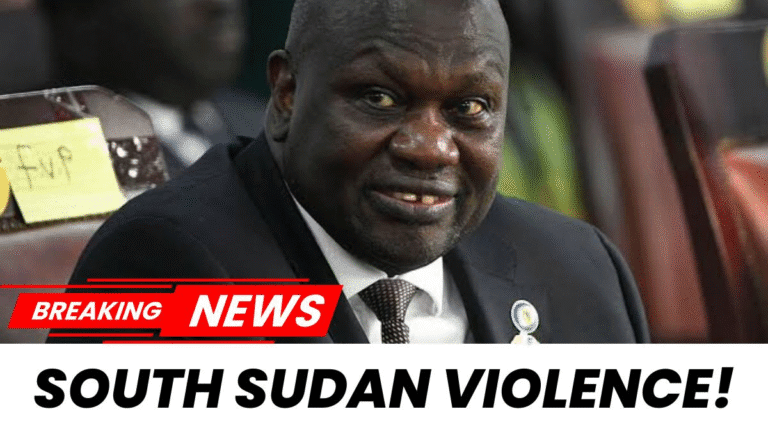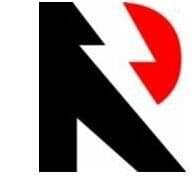South Sudan’s Machar Faces Charges: A Reckoning for War Crimes?

THE HAGUE – South Sudanese First Vice President Riek Machar faces charges on Friday with war crimes and crimes against humanity by an international tribunal for his central role in the country’s brutal civil war. The long-awaited indictment comes years after the peak of the violence that devastated the world’s youngest nation, highlighting the persistent and perilous gap between mass atrocities and political accountability.
The charges compel a reckoning not only for Mr. Machar but also for an international community that has frequently prioritized fragile peace agreements over justice for victims. For South Sudan, this marks a crucial and potentially explosive moment.
Key Takeaways
- Charges Filed: South Sudan’s First Vice President, Riek Machar Faces Charges with war crimes and crimes against humanity by a hybrid international tribunal for his role in the nation’s civil war.
- Years of Impunity: The charges come over a decade after the start of a conflict that killed an estimated 400,000 people and displaced millions, highlighting a significant delay in accountability.
- Peace vs. Justice Dilemma: The indictment creates a major political crisis, as Machar is a central figure in a fragile unity government. Pursuing justice now threatens to destabilize the country’s tenuous peace.
- Global Precedent: The case is a major test for international justice and the fight against impunity, questioning whether political leaders who oversee mass violence can ever truly be held to account, even when integrated into peace deals.
South Sudan’s Machar Faces Charges: Justice or Too Late?
The Indictment: A Litany of Atrocities
The newly operational Hybrid Court for South Sudan issued an indictment detailing Mr. Machar’s command responsibility for ethnically targeted killings, rape as a weapon of war, and the forced displacement of civilian populations between 2013 and 2016.
Prosecutors specifically cited evidence related to massacres in the towns of Bor, Bentiu, and Malakal, where thousands of people were killed based on their ethnicity.
These atrocities have been extensively documented for years by organizations like Human Rights Watch, which has repeatedly called for a war crimes court to be established.
“For years, the perpetrators of horrific crimes in South Sudan have enjoyed absolute impunity,” the tribunal’s chief prosecutor said in a statement. “Today, that begins to change. The evidence compels us to act, regardless of official title or political position.”
A Fragile Peace and the Politics of Justice
The Riek Machar charges land in an extremely delicate political environment. Mr. Machar currently serves as First Vice President in a Revitalized Transitional Government of National Unity, a power-sharing arrangement with his arch-rival, President Salva Kiir, whose forces are also accused of widespread atrocities.
This peace deal, like many before it, was predicated on the inclusion of the main belligerents in government, effectively shielding them from prosecution. The charges now directly challenge the foundation of that stability. The government in Juba has yet to issue a formal response, but the move is expected to be met with fierce resistance, as reported by news agencies like Reuters which have long covered the peace process.
“This is the ultimate dilemma for post-conflict nations,” a senior Africa analyst noted. “Do you pursue justice and risk a return to war, or do you accept a flawed peace that includes the very people responsible for the violence?”
The ‘Impunity Gap’: A Global Challenge
The South Sudan case is a stark example of the “impunity gap” seen in conflicts worldwide. Powerful political and military leaders are often able to commit or oversee mass violence, secure their position in subsequent peace negotiations, and evade any form of legal reckoning for years, if not forever.
The delay in establishing the Hybrid Court, which was mandated by the 2015 peace agreement, underscores the lack of political will that often plagues international justice efforts. The decision to finally press charges against a sitting vice president is a bold move, but one that is fraught with risk.
Whether this indictment will serve as a deterrent to other leaders or simply prove that justice for mass violence is too politically explosive to pursue remains a critical question. For the victims of the South Sudan conflict, it is a long-overdue, if precarious, first step toward acknowledgement and accountability.
Also read, Taiwan’s Digital Defenses Go Naval: What It Means for Cybersecurity.
Frequently Asked Questions (FAQs)
Riek Machar is facing charges of war crimes and crimes against humanity. These include command responsibility for ethnically motivated killings, the systematic use of rape and sexual violence, and the forced displacement of civilians during the South Sudanese Civil War (2013-2018).
Riek Machar is a veteran South Sudanese politician and former rebel leader. He has served as the country’s First Vice President multiple times, including in the current unity government. He was a central figure in the civil war, leading the main opposition force against President Salva Kiir’s government.
The charges were delayed for years due to a lack of political will from both South Sudan’s leaders and the international community to establish the Hybrid Court mandated by the 2015 peace agreement. Prioritizing a fragile political stability over criminal accountability has been a persistent feature of the peace process.
The charges could severely destabilize the country. As First Vice President, Machar is integral to the current power-sharing government. His indictment could lead to a political crisis, a collapse of the unity government, and potentially a return to wider conflict if his supporters react violently.
Christine Morgan is a senior staff writer and journalist at ReadBitz.com, where she brings clarity and context to the most pressing global events. As a leading voice on the daily news desk, she is dedicated to demystifying the complex web of international affairs, politics, and economics for a diverse global readership.
